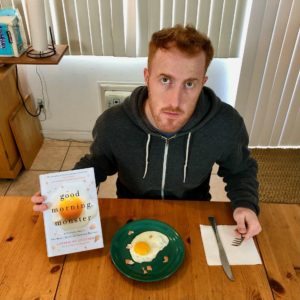 **Please be warned, this review is about the trauma of victims of abuse and includes graphic imagery**
**Please be warned, this review is about the trauma of victims of abuse and includes graphic imagery**
There are people who train their bodies and minds for years, go to fight in a foreign war, get injured in the line of duty, and return home to accolades and praise for their service. They are heroes. There are also people who get raped from the age of three until the age of fourteen by their father, have their grandmother starve them and beat them for complaining of hunger, and manage to grow up and graduate from a good school, keep a steady job, and fall in love. These people are also heroes, albeit a different kind.
Catherine Gildiner was a clinical psychologist and practicing therapist for 25 years and this book is a distillation of 5 of her most traumatic cases. Her clients were victims of every kind of abuse you can imagine, from physical to emotional to sexual. Many were victims of all three, in addition to abandonment, neglect, and, in one case, true sadism (one patient’s father was a member of a Ted Bundy fan club).
Imagine you’re ten years old, and every morning when you wake up your mother greets you by saying “Good morning, monster.” She doesn’t do it in a playful way; she genuinely means it. You ruined her life. Or, imagine being abandoned by your father at the age of 9, in a cabin in rural Canada in the dead of winter, left to care for your 7 year old sister and 6 year old brother. This harrowing tale also happened to one of her patients, who somehow managed to not only survive, but went on to get married, have children of her own, and love them.
Her patients were able to overcome their traumatic childhoods with her help and guidance, and she is gracious enough to share some of her techniques in the pages of her book (with names and locations changed for the privacy of her clients). A very important tool is reframing, which is “taking a concept and relabelling it so as to alter its meaning.” For example, when her patient described not being able to properly raise her 6 and 7 year old siblings in the Canadian winter as a failure, Gildiner reframed that as a success, because all three children survived and lived to adulthood.
Some therapy takes a few weeks or months, depending on the severity of the symptoms and the problems the patient is seeking help with. These particular cases spanned years, as her patients needed to build trust with someone who genuinely cared about their wellbeing. “Therapy is a lot like growing a tree,” she writes. “For the first few years there appears to be no major growth, but by the third year, after the roots have established themselves and can support the trunk, the tree shoots upwards.” They needed repeated exposure to her emotional support for them before they could take positive steps towards recovery.
One of the most important revelations from her work is that therapy isn’t about finding the truth. It’s really about getting your unconscious mind to stop controlling your conscious one. “Effective therapy is about lowering your defenses so that you can deal with the issues that arise in your life.” If you never developed secure attachment to your mother as an infant (one of her patients was locked in the attic from 6am to midnight from ages 2 to 5), you may be emotionally stuck there. The conscious mind lives on as you grow older, but your unconscious is still stuck in that attic, crying out for the love and attachment that parents are supposed to provide in early infancy. Only with a nurturing, safe environment can the patient allow themselves to understand this and work to build healthy attachments and eventually love.
Most of her patients did not believe they were deserving of love. If your parents, the people who are supposed to love you unconditionally, actively do not, how are you supposed to learn what love really is and how to do it? The sad reality is that “almost all abusive parenting is based on generations of the same; those who are abusive were likely themselves abused.” There are no villains in these cases, as patients often times feel sympathy for their parents who never had a chance to hone the proper parenting tools. Sadly, families can pass dysfunction and trauma down through generations the same as genetic traits.
While she undoubtedly had some patients who didn’t find success in therapy, the 5 mentioned in her book all made substantial steps towards leading happy and healthy lives. The lesson to take away is that no matter who you are or what your childhood was like, you can overcome it. “Love,” she taught them, “means vulnerability; people who love you can also hurt you. Making oneself vulnerable is the ultimate in bravery.” I also believe this to be true: Love requires vulnerability, and vulnerability requires bravery. You might not feel much love in your life right now, but you can learn to open yourself up to it in ways that are safe. Regardless of how you grew up, we are all deserving of love. Don’t you dare think otherwise. (And if you do, find a therapist. They literally save lives.)


Leave a Reply